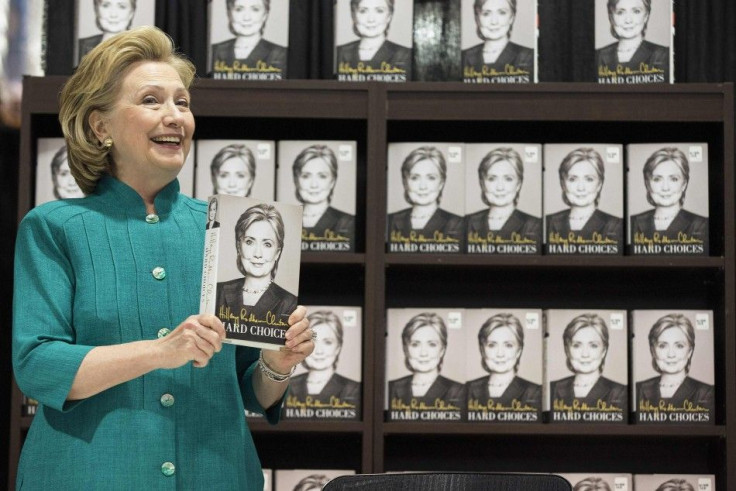US Slams Conspiracy Theory with ISIS

The U.S. government has categorically denied the conspiracy theories linking it with the terror group ISIS (Islamic State of Iraq and Syria).
The rumours started rounding up because Hillary Clinton reportedly admitted it in her book "Hard Choices."
Conspiracy theorists took screenshots of excerpts of her book where Clinton, former US secretary of state, allegedly said the U. S. was the brains behind the establishment of the Islamic State.
Read: ISIS Launches 'Caliphate' Passport, Openly Distributes Leaflets in London
But in reality, what Clinton did say in the book was that the failure of the US to aid Syrian rebels created an opening and catapulted the rise of the Islamic State.
In fact, in an interview with the Atlantic, Clinton said, said, "The failure to help build up a credible fighting force of the people who were the originators of the protests against [Bashar al-Assad] - there were Islamists, there were secularists, there was everything in the middle - the failure to do that left a big vacuum, which the jihadists have now filled."
Although she had dispelled rumours, people in Lebanon seemed to strongly believe the lies, if to judge the actions of the Lebanese Foreign Ministry which summoned U.S. Ambassador David Hale to explain the rumour.
Read: ISIS Recruits Children, Brainwashes Them to Kill Christians; Vatican Says Military action 'Probably Necessary'
Going a step further, the U.S. Embassy in Beirut released a status statement on Facebook quelling the rumours and that any story involving the U.S to the establishment of ISIS were just "pure fabrication."
That the U.S. is specifically being targeted as chief mastermind, according to Octavius Pinkard, not shocking since it is fond of supporting militant and guerrilla groups.
"Such theories abound, largely because Washington has shown a propensity for outsourcing regime change. Support for insurgent groups in that context is certainly not a new practice and, as of late, has not been a particularly effective one," Pinkard, a specialist in foreign policy analysis and Middle East politics, told BBC News.
The statement of the US Embassy in Beirut in Facebook here.






